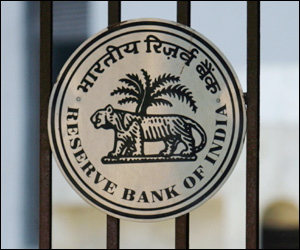If you aren't aware of what's happening around the world then my simple advice is to wake up and smell the coffee. Hell is about to break lose and massive riots around the world are in development. If London is anything to go by then the world is soon going to see lots of looting and rioting in the coming years.
If you have absolutely no idea about I am talking about click on the following link :
http://www.youtube.com/watch?v=Jjv-MtGpj2U&feature=player_detailpage
So, the question now remains how to prepare for it?
1. Buy Gold and tons of it : Gold is the only thing that is going to shine in the near future. If all hell breaks loose and we go back to the barter system in general then the only thing that will be able to buy you food and water is gold. Obviously with the current prices people aren't going to be willing to buy gold and traders and analysts will advice you to sell gold. My advice is to hold onto it.
2. Limit Fixed Savings : If you are the sort of person who depends on Fixed Deposits and Closed Ended schemes for returns. I would suggest that you immediately stop investing any further. Because if governments the world over default on payments. Then banks default on payments and eventually you as the consumer don't get paid.
3. Stop Taking Debt : As it is there is enough debt in the economy stop forcing it to bleed any further by taking more debt. The more debt you take the less money there is and as a result the closer we are to a world economic crash.
4. Limit Cash Holdings: While a greater number of you might not agree with me the best thing you can do right now is to put your capital to work. Use your cash to buy commodities. Apart from buying last you for gold, silver and other metals invest in your businesses further or buy essential goods which do not come with an expiry date or come with a longer expiry date. Stock up on basic essentials of life or buy any good that comes cheap.
5. Read up and Prepare for the Worst : This is probably the only time after the 2008 Economic Crash when the people of the world will be forced to read The Communist Manifesto and other books by Karl Marx. Apart from these read up on the barter system and a resource based economy.
6. Sell Stock Holdings : Your stocks stand at the greatest risk at this point of time. The moment the market shows any sign of recovery and you can make up your principal sell immediately your holdings and convert the money into liquid savings.
That's pretty much it. Not much you can do. We are all sitting ducks who can simply wait and watch.
-Doodle
If you have absolutely no idea about I am talking about click on the following link :
http://www.youtube.com/watch?v=Jjv-MtGpj2U&feature=player_detailpage
So, the question now remains how to prepare for it?
1. Buy Gold and tons of it : Gold is the only thing that is going to shine in the near future. If all hell breaks loose and we go back to the barter system in general then the only thing that will be able to buy you food and water is gold. Obviously with the current prices people aren't going to be willing to buy gold and traders and analysts will advice you to sell gold. My advice is to hold onto it.
2. Limit Fixed Savings : If you are the sort of person who depends on Fixed Deposits and Closed Ended schemes for returns. I would suggest that you immediately stop investing any further. Because if governments the world over default on payments. Then banks default on payments and eventually you as the consumer don't get paid.
3. Stop Taking Debt : As it is there is enough debt in the economy stop forcing it to bleed any further by taking more debt. The more debt you take the less money there is and as a result the closer we are to a world economic crash.
4. Limit Cash Holdings: While a greater number of you might not agree with me the best thing you can do right now is to put your capital to work. Use your cash to buy commodities. Apart from buying last you for gold, silver and other metals invest in your businesses further or buy essential goods which do not come with an expiry date or come with a longer expiry date. Stock up on basic essentials of life or buy any good that comes cheap.
5. Read up and Prepare for the Worst : This is probably the only time after the 2008 Economic Crash when the people of the world will be forced to read The Communist Manifesto and other books by Karl Marx. Apart from these read up on the barter system and a resource based economy.
6. Sell Stock Holdings : Your stocks stand at the greatest risk at this point of time. The moment the market shows any sign of recovery and you can make up your principal sell immediately your holdings and convert the money into liquid savings.
That's pretty much it. Not much you can do. We are all sitting ducks who can simply wait and watch.
-Doodle


























